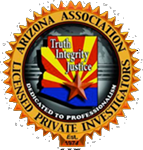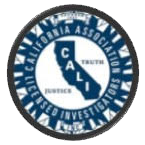Real Estate Fraud Investigations in Costa Rica
Real Estate Fraud Investigations in Costa Rica: What You Need to Know
Real estate fraud in Costa Rica affects both locals and foreigners. The country's beautiful scenery, favorable climate, and stable political climate attract many investors and retirees looking to purchase property. Unfortunately, some unscrupulous individuals take advantage of this situation to perpetrate real estate fraud scams. As a result, many people have lost their hard-earned money, and some have even lost their homes.
Real estate fraud investigations in Costa Rica are essential to protect property owners from fraudulent activities. These investigations involve a thorough examination of the property's title, ownership, and other relevant documents to ensure that everything is legitimate. Investigators also conduct background checks on the parties involved in the transaction, including real estate agents, lawyers, and notaries, to identify any potential red flags. If fraud is found, investigators work with law enforcement agencies to bring the perpetrators to justice.
Key Takeaways
- Real estate fraud is a serious problem in Costa Rica that affects both locals and foreigners
- Real estate fraud investigations in Costa Rica involve a thorough examination of the property's title, ownership, and other relevant documents to ensure that everything is legitimate
- Investigators work with law enforcement agencies to bring the perpetrators of real estate fraud to justice
Understanding Real Estate Fraud in Costa Rica
Real estate fraud is a serious problem in Costa Rica, affecting both locals and foreigners. Fraudsters use various tactics to scam people out of their money, including fake titles, forged documents, and illegal land sales. The problem is compounded by the lack of regulation and oversight in the real estate industry, which makes it easier for fraudsters to operate.
One common tactic used by fraudsters is to target properties that seem empty or abandoned. They will then speak to neighbors to gather information about the property and its owner. Once they have this information, they may try to sell the property to unsuspecting buyers, using fake documents and titles.
Another tactic is to offer properties at prices that seem too good to be true. In some cases, the properties may not even exist, or they may be located on land that is not zoned for development. In other cases, the properties may be sold multiple times to different buyers, with each buyer thinking they have a legitimate claim to the property.
To avoid falling victim to real estate fraud in Costa Rica, it is important to do your due diligence. This includes verifying the ownership of the property, checking for liens and encumbrances, and ensuring that all documents and titles are legitimate. It is also advisable to work with a reputable real estate agent or attorney who has experience in dealing with real estate transactions in Costa Rica.
In summary, real estate fraud is a serious problem in Costa Rica that affects both locals and foreigners. Scammers use various tactics to scam people out of their money, including fake titles, forged documents, and illegal land sales. To avoid falling victim to real estate fraud, it is important to do your due diligence and work with reputable professionals.
Investigative Processes and Legal Framework
Types of Real Estate Fraud
Real estate fraud can take many forms, such as title fraud, mortgage fraud, and investment fraud. Title fraud occurs when someone fraudulently transfers ownership of a property to themselves or another party. Mortgage fraud involves in Costa Rica misrepresenting information to obtain a mortgage, while investment fraud involves deceiving investors into investing in a fraudulent real estate scheme.
Key Indicators of Fraudulent Activities
There are several red flags that may indicate fraudulent activities in real estate transactions. These include:
- The seller is in a hurry to close the deal and does not allow for proper due diligence
- The property is priced significantly below market value
- The seller is not the registered owner of the property
- There are discrepancies in the property's title or ownership history
- The seller insists on cash payments or wire transfers
Stages of a Real Estate Fraud Investigation
A real estate fraud investigation typically involves several stages, including:
- Complaint: A complaint is filed with the appropriate authorities, such as the police, the prosecutor's office, or the real estate regulator.
- Investigation: The authorities investigate the complaint by gathering evidence, interviewing witnesses, and conducting forensic analysis.
- Prosecution: If there is sufficient evidence, the authorities may prosecute the individuals involved in the fraud.
- Restitution: If the defendants are found guilty, they may be required to pay restitution to the victims.
Legal Procedures and Recourse
Victims of real estate fraud have several legal options for recourse, including:
- Civil Lawsuits: Victims can file a civil lawsuit against the parties involved in the fraud to recover damages
- Criminal Complaints: Victims can file a criminal complaint with the appropriate authorities, which may result in criminal charges being filed against the individuals involved in the fraud
- Regulatory Complaints: Victims can file a complaint with the appropriate regulatory agency, which may result in fines or other disciplinary actions against the parties involved in the fraud
It is important for victims of real estate fraud to seek the advice of a qualified attorney to explore their legal options and ensure that their rights are protected.
Frequently Asked Questions
What are the common indicators of real estate fraud in property transactions?
Real estate fraud can be difficult to detect, but there are certain indicators that can raise red flags. Some common indicators of real estate fraud in property transactions include:
- Unusually low prices for properties that seem too good to be true
- Pressure to sign documents quickly without sufficient time to review them
- Requests for wire transfers or other forms of payment that cannot be traced
- Sellers who are difficult to contact or who avoid answering questions
- Properties that have unclear title histories or liens
What steps should be taken to verify the authenticity of property documents?
To verify the authenticity of property documents, it is important to conduct due diligence and work with trusted professionals. Some steps that can be taken include:
- Conducting a title search to determine the ownership history of the property
- Reviewing property tax records to ensure that taxes have been paid
- Verifying the identity of the seller and ensuring that they have the legal right to sell the property
- Working with a reputable real estate agent or attorney who can help with the transaction
How can investors protect themselves from fraudulent real estate schemes?
Investors can protect themselves from fraudulent real estate schemes by being vigilant and conducting thorough due diligence. Some additional steps that can be taken include:
- Avoiding investments that promise unusually high returns with little risk
- Researching the reputation of the seller or company offering the investment
- Ensuring that all investment agreements and documents are reviewed by an attorney
- Being wary of investments that require large upfront payments or wire transfers
What legal actions can be pursued if you fall victim to real estate fraud?
If you fall victim to real estate fraud, there are several legal actions that can be pursued. Some options include:
- Filing a complaint with the local authorities or regulatory bodies
- Pursuing a civil lawsuit against the seller or company responsible for the fraud
- Seeking criminal charges against the individuals responsible for the fraud
How do authorities investigate and prosecute real estate fraud cases?
Authorities investigate and prosecute real estate fraud cases by gathering evidence and working with experts in the field. Some common steps in the investigation and prosecution process include:
- Conducting interviews with witnesses and individuals involved in the transaction
- Reviewing financial records and other documents related to the transaction
- Working with experts such as forensic accountants and real estate appraisers to evaluate the transaction
- Pursuing criminal charges against individuals involved in the fraud
What are the best practices for conducting due diligence before investing in real estate?
Conducting due diligence before investing in real estate is crucial to avoid falling victim to fraud. Some best practices for due diligence include:
- Researching the reputation of the seller or company offering the investment
- Conducting a title search to determine the ownership history of the property
- Reviewing property tax records to ensure that taxes have been paid
- Working with a reputable real estate agent or attorney who can help with the transaction

-formatted.jpg)



